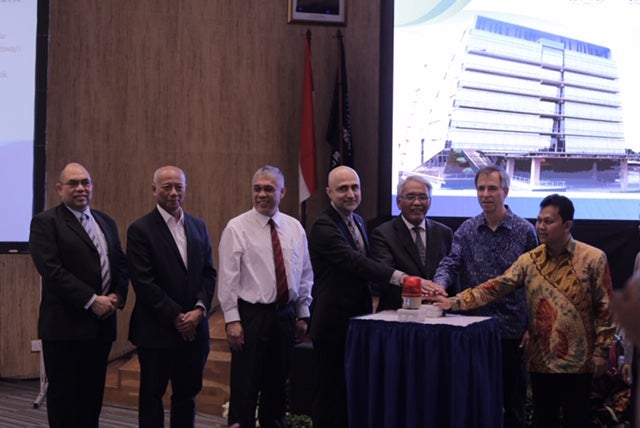Waterloo helps Indonesian university launch co-op program

On March 12, Bill Duggan, the University of Waterloo’s READI Project Field Director, joined with Dr. Totok Prasetyo, Director of Institutional Development of Higher Education (Kemenristekdikti), Abdullah Mojadeddi, First Secretary of the Embassy of Canada and Prof. Djisman Simandjuntak, Rector, Prasetiya Mulya University, to open Indonesia’s first Co-operative Education Office at Prasetiya Mulya University.
As one of the READI Project’s first Indonesian university stakeholders, Prasetiya Mulya University embraced the co-operative education model immediately. They have devoted significant time and resources over the past two years to adapting their educational structure as they pioneered the development of this very effective type of work-integrated learning.
One of the READI Project’s key objectives is to introduce co-operative education to our Indonesian colleagues. Scott Davis, long-time staff member in Co-operative Education on-campus and the READI Project’s Co-op Program Officer, coached these Indonesian university and employer partners over the past two years to help them understand and develop co-op programming that best fits their education and employment systems. Students who participate in the co-op program at Prasetiya Mulya will accumulate a minimum of 1 year of work experience (the equivalent of 2 short semesters and 2 regular semesters) prior to graduation.
In his remarks, Dr. Prasetyo welcomed the implementation of co-op programming within the country’s university system to support and enhance the links between university and industry. According to Dr. Prasetyo, the purpose of higher education is to prepare students to be ready to enter the workforce.
Prasetiya Mulya’s Co-op Office was built with financial support from the READI Project. The facility includes interview rooms, online learning rooms, meeting and training rooms. Maydison Ginting, PhD, Head of Business Mathematics Department, explained that the Co-op Office is designed to facilitate participation in the co-op employment process for both students and employers. “Students can get advice on how to write their CVs and cover letters, browse information about the companies, practice their communication skills to prepare for interviews, and an introduction to online learning. The companies can visit the office to meet with students and conduct their interviews.”
Prasetiya Mulya University first launched its co-op program in 2018; to date, more than 100 students have been involved. Students are alternating their classroom study with working in various companies such as insurance, banking, e-commerce, technology, and other financial services.
An additional hallmark of success for the READI Project is the upcoming announcement by the Ministry of Research, Technology and Higher Education (Kemenristekdikti) that a Ministerial Decree has been drafted to approve and regulate the implementation of Co-operative Education programming in Indonesian Higher Education legislation. This regulation will encourage and enable more Indonesian universities to implement co-op programs.
Originally posted on the Daily Bulletin